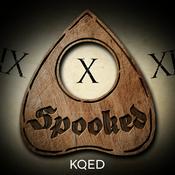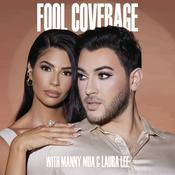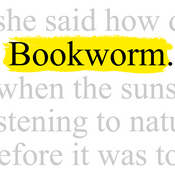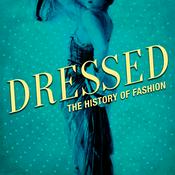79 episodes
- Nymphadora Tonks is one of the most beloved characters in the Harry Potter series — and one of the most underserved. In this episode, we dig into 303 listener responses about the only woman Auror we meaningfully encounter in the wizarding world. The data is striking: 93% of listeners say she's a good person, 80% call her a hero, but when it comes to whether she was a good mother, the majority said they simply don't know.
We break down every survey question, pull unabridged listener quotes, and sit with the moment that never gets enough attention — Tonks finding Harry on the Hogwarts Express through pure deductive reasoning, in a scene the films handed to someone else.
So much of what listeners felt about Tonks wasn't about who she is. It was about who she was going to be. We talk about what it means that she enters this series without a gendered anchor — and why the series seems deeply uncomfortable leaving her that way.
This one is for everyone who saw her. And was paying attention. - In this Prof Responds episode, Professor Julian Wamble revisits Fleur Delacour and the surprising truth many listeners shared: we didn’t like her when we were younger, and we weren’t always sure why.
Drawing on the post-episode chat, this reflection explores how internalized misogyny, pretty privilege, and patriarchal expectations shape how we judge female characters in Harry Potter. The episode examines the rivalry between women, the real social weight of beauty, and why Fleur’s loyalty and bravery were always there, even when the story and the fandom overlooked them. By the end, the question isn’t whether Fleur is a hero, but why we needed her to prove it in the first place. - Fleur Delacour is one of the most misunderstood women in the Harry Potter series. She's often blamed for her beauty, scrutinized for her confidence, and held responsible for the reactions of everyone around her. In this episode, we examine how Fleur becomes a lightning rod for gendered blame, punished not for what she does, but for what others assume about her beauty, her Veela ancestry, and her femininity.
Drawing on listener survey data, we unpack why Fleur’s competence as a Triwizard Champion is questioned, why her confidence is read as arrogance, and why both men and women are so quick to fault her for male desire. We also return to our earlier conversation about Lavender Brown to explore how readers inherit Hermione Granger’s gendered lens, and how that lens teaches us which women are worthy of empathy and which are not. - In this Prof Responds episode, Professor Wamble reflects on listener responses to the “Best & Worst Teachers at Hogwarts” discussion and steps back to ask a larger question: What does it mean to teach in the shadow of war?
Drawing on Hogwarts faculty, Defense Against the Dark Arts, and Dumbledore’s leadership, this episode explores how education changes under sustained threat, how silence functions as pedagogy, and why students, especially marginalized ones, so often bear the cost of adult indecision. The conversation connects the magical world to the present political moment, examining the dangers of ignoring reality, the limits of preparing students without transparency, and the ethical responsibility educators carry when the world outside the classroom is already on fire.
This episode is invites us to reckon with power, authority, and the consequences of what schools choose to teach and what they refuse to name. - In this two-year anniversary episode of Critical Magic Theory, Prof. takes a step back from individual character deep dives to ask a bigger question about pedagogy, power, and responsibility in the wizarding world—and beyond.
Drawing on listener survey data, this episode explores why some teachers are remembered as effective despite being deeply troubling, while others are overwhelmingly rejected. The conversation then shifts away from the most dramatic figures to examine the quieter labor that keeps Hogwarts running: teachers like Flitwick, Sprout, Binns, Charity Burbage, Madam Hooch, and especially Madam Pomfrey. Through them, we see what Hogwarts values, what it neglects, and how unresolved trauma and institutional ambiguity shape classrooms in harmful ways.
As the show enters its third year, this episode invites listeners to reflect not just on Hogwarts, but on their own role in shaping how knowledge, care, and critical thinking are passed on.
More Arts podcasts
Trending Arts podcasts
About Critical Magic Theory: An Analytical Harry Potter Podcast
Instead of seeing criticism as an indication of not liking something, Professor Julian Wamble invites listeners of Critical Magic Theory to explore the things about the characters, plot points, and the Wizarding World of Harry Potter broadly that have always given them pause or made them smile without knowing why. It is in this navigation of the positive and the negative aspects of a world that we find true magic.
Podcast websiteListen to Critical Magic Theory: An Analytical Harry Potter Podcast, The Best 5 Minute Wine Podcast and many other podcasts from around the world with the radio.net app
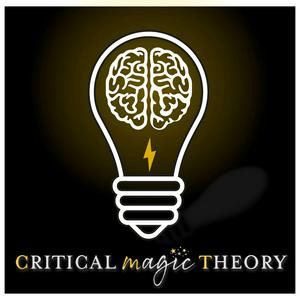
Get the free radio.net app
- Stations and podcasts to bookmark
- Stream via Wi-Fi or Bluetooth
- Supports Carplay & Android Auto
- Many other app features
Get the free radio.net app
- Stations and podcasts to bookmark
- Stream via Wi-Fi or Bluetooth
- Supports Carplay & Android Auto
- Many other app features


Critical Magic Theory: An Analytical Harry Potter Podcast
Scan code,
download the app,
start listening.
download the app,
start listening.









